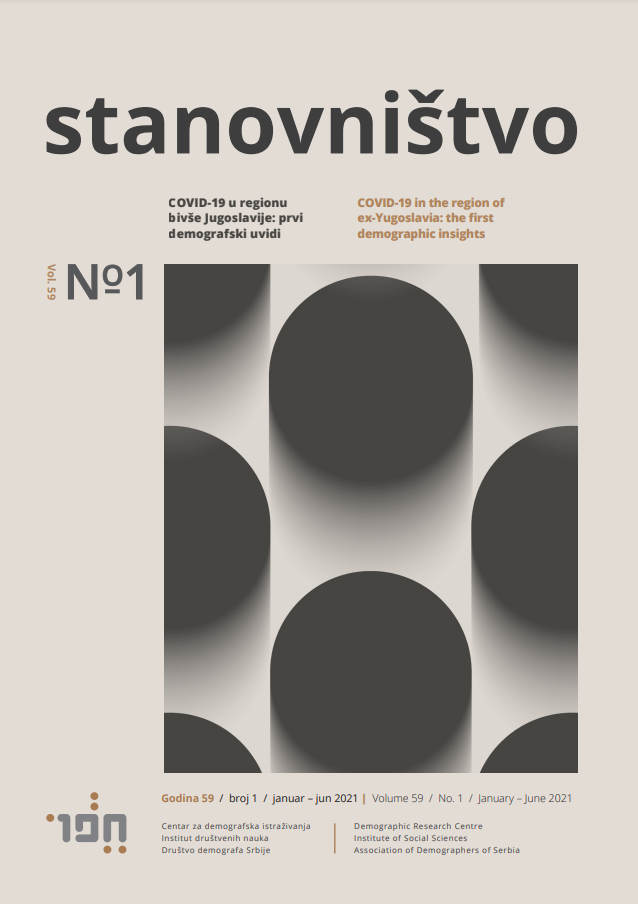Iskustva i očekivanja povratnika iz inostranstva u Srbiju u doba pandemije COVID-19
The experiences and expectations of returnees to Serbia during the COVID-19 pandemic
Author(s): Milica Z. Vesković AnđelkovićSubject(s): Social Sciences
Published by: Институт друштвених наука
Keywords: returnees; experience of self-isolation; motives of return; expectations after the pandemic; state policy
Summary/Abstract: This article discusses the experiences of Serbian citizens who came back to their country of origin just before or at the onset of the COVID-19 pandemic and the introduction of the state of emergency. We analysed their motives to return and their experiences during self-isolation. We also highlighted the problems they encountered at the beginning of the pandemic and the impact they had expected the pandemic would have on their social and economic status. The paper covers their plans for mobility after the end of pandemic, as well as potential motives for staying in Serbia. The aim is to show that even though a large number of citizens came back to Serbia when the crisis broke out and could not have predicted what would happen to their social and economic status in their destination countries, they still did not intend to stay in Serbia after the end of the pandemic. The whole social system in Serbia would need to be changed for them to decide to stay. Discussion of the results is based on data collected at the beginning of pandemic by researchers from the Institute of Sociological Research, one of whom was the author of this paper. Due to the health risks related to the coronavirus, we used a quantitative method: a questionnaire distributed online via the Google platform. As such, the respondents were mostly young and educated people who took part in the research because they used the internet on a daily basis and were able to fill in the survey easily. For this reason, the results presented in this article cannot be generalised to represent the whole population, but only the respondents of this research. The findings are placed within a contextual framework in which the world’s population is extremely mobile. We recognised a similarly high level of mobility among Serbian citizens, too. The COVID-19 pandemic has affected many different aspects of life, and so a large share of respondents decided to come back to their home country. This was a normal coping strategy, especially for those migrants who did not have officially recognised status in their destination country. Returnees faced many problems when they returned to their home country; they had to self-isolate and did not know what would happen with their jobs once the pandemic was over. They also didn’t know if they would receive an income or what would happen with the social system, either in their home country or in their country of emigration. Analysis of the data revealed that despite their expectations of an economic crisis following the drastic measures introduced to suppress the spread of the coronavirus, a large share of respondents believed that the crisis wouldn’t have an impact on their material and social status in their destination country. Because of that, we noted that most respondents wished to go back to their destination country after the crisis was over. However, it’s suggested that if we want them to stay in Serbia, then the state should introduce measures that include both economic and social reforms.
Journal: Stanovništvo
- Issue Year: 59/2021
- Issue No: 1
- Page Range: 47-60
- Page Count: 14
- Language: Serbian

